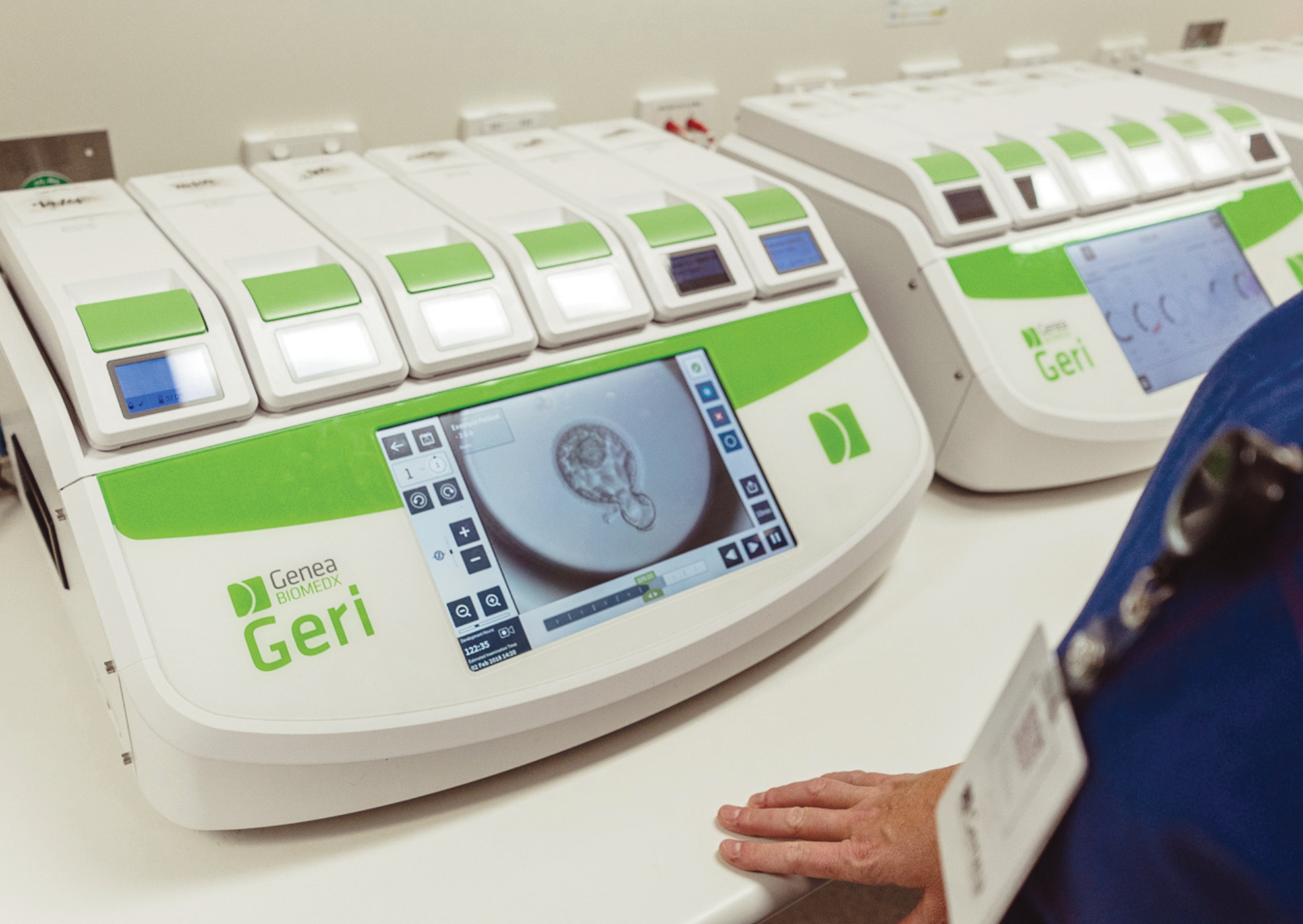
Introduction
One of the most common questions I receive in my practice is: “How long does IVF take from start to finish?”
The short answer? Most IVF cycles take between 4 to 8 weeks, but the complete journey—from your first consultation to your pregnancy blood test—can take longer depending on your medical history, fertility goals, and whether a fresh or frozen embryo transfer is planned.
If you’re just starting to explore fertility treatment in Melbourne or Victoria, understanding the timeline of an IVF cycle can ease anxiety, support decision-making, and help you feel more prepared. This article offers a clear roadmap of the IVF process from start to finish—designed especially for individuals in the early stages of their fertility journey.
💡 Note: This blog is general educational information only and does not constitute personalised medical advice. Please consult with a fertility specialist to discuss your individual situation.
Phase 1: Initial Consultation and Fertility Work-Up
Timeline: 1–2 weeks
Your journey begins with a comprehensive consultation with a fertility specialist. During this stage, we will discuss your medical history, discuss your fertility goals, and complete diagnostic tests such as:
- Blood tests
- Pelvic ultrasound
- Semen analysis (if applicable)
This phase is about information gathering—and it’s a critical step in forming your personalised plan. It also allows time for identifying any additional health conditions that may need to be addressed before treatment begins.
💡 Emotional note: Many of my patients feel a mix of curiosity and nervousness during this time. That’s completely normal. Bring your questions. Feeling informed can help reduce uncertainty.
Phase 2: Treatment Planning & Pre-Cycle Coordination
Timeline: 1–3 weeks
Once results are in, I will develop a personalised treatment plan and you will meet your Genea treatment team who will then facilitate your understanding of your medication instructions, reviewing consent forms, discuss your private health coverage, and timeline planning.
You’ll also meet with a fertility nurse to go through medication instructions, injection training, and any necessary pre-treatment logistics. This stage ensures you feel confident about when and how to begin treatment.
You will meet the Genea fertility counsellor at this stage, for pre treatment discussion to help you understand the medical, psychological, ethical, and legal aspects of IVF treatment.
💡 Treatment tip: Take time to review all documentation and medication instructions. Don’t hesitate to reach out with questions.
Phase 3: Treatment start- Ovarian Stimulation and Monitoring
Timeline: 10–14 days
You are in full control of when you start your treatment. You chose during which menstrual period you start your treatment.
The ovarian stimulation is the most active part of the IVF cycle. You’ll start self-administered hormone injections to stimulate your ovaries to grow multiple follicles. These are given as daily subcutaneous (under the skin) injections—your nurse will guide you through exactly how to administer them.
During this phase, you’ll come into the clinic for monitoring:
– Transvaginal ultrasounds to track follicle growth
– Occasional blood tests to check hormone levels
The number of visits during this stage can vary, but most patients attend 1-3 monitoring appointments. It’s important to stay flexible with your schedule.
💡 Note: Most patients continue working during this phase, though lighter schedules and some planning ahead is recommended. Symptoms can include bloating, fatigue, and mood fluctuations due to hormonal changes.
Phase 4: Trigger and Egg Collection
Timeline: Trigger given 36 (35-37) hours before procedure; 1-2 day recovery
When your follicles are mature, you’ll receive a final injection known as the trigger. This prepares the eggs for retrieval.
Approximately 36 hours later, we perform the egg collection procedure in hospital under light sedation. It takes approximately 15-20 minutes. It’s a day procedure—you’ll need someone to accompany you home.
The number of eggs retrieved can vary depending on your age, ovarian reserve, and response to stimulation.
Recovery: Most people take 1–2 days off work to rest. Some experience mild cramping, bloating, or spotting afterward. Pain relief and recovery tips are provided as part of your aftercare.
💡 Treatment tip: Arrange time off and a support person for transport and aftercare.
Phase 5: Fertilisation and Embryo Development
Timeline: monitored up to 6 days
Once the eggs are collected, they are fertilised in the lab using IVF or ICSI, depending on your specific plan. At Genea, your embryos are grown in advanced Geri incubators, which provide a stable, undisturbed culture environment for each embryo.
Genea embryologists monitor the fertilised eggs closely over the next few days.
You’ll be updated on:
– Number of eggs successfully fertilised
– Embryo growth and grading
– Suitability for transfer or freezing.
You will also receive photos and videos through the Genea Grow app of your embryos.
On day 5 and 6, embryos are assessed for transfer or cryopreservation. Preimplantation genetic testing (PGT) may also be performed at this stage in some cases.
💡 Treatment tip: Try to stay occupied and manage expectations day by day.
Phase 6: Embryo Transfer (Fresh Transfer Option)
Timeline: Same day procedure
If a fresh embryo transfer is planned, the best quality embryo is transferred into your uterus under ultrasound guidance. The procedure is performed using a fine catheter and is usually painless.
- No anaesthetic required
- Takes around 10–15 minutes
- You can walk out of the clinic afterward and resume normal activities
If a fresh transfer is not appropriate due to your response to stimulation or endometrial lining preparation, your embryos will be frozen and transferred at a later date.
💡 Treatment tip: Light activity is encouraged. No bed rest needed—keep calm and carry on as normal.
Phase 7: The TWO WEEK Wait and Pregnancy Testing
Timeline: 10–11 days
After embryo transfer, you’ll begin the wait for your pregnancy blood test. This period is often described as the most emotionally challenging phase of the cycle.
- You may experience mild cramping or spotting
- Emotional fluctuations are common due to progesterone support medications
- Try to limit Google searches and avoid testing early at home
We’ll arrange a pregnancy blood test around 10–11 days after your transfer. If the result is positive, we’ll schedule an early pregnancy ultrasound at 6–7 weeks gestation.
💡 Treatment tip: Avoid taking home pregnancy tests early. Stay connected with friends or a counsellor.
Optional: Frozen Embryo Transfer (FET) Timeline
If you’re planning a frozen embryo transfer (FET), your next cycle will be prepared either with:
– A natural cycle (tracked using ultrasound and blood tests)
– A medicated programmed cycle (using oestrogen and progesterone)
The embryo transfer will occur once your lining is ready—this may be approximately 3–4 weeks from the start of your FET cycle.
💡 Treatment tip: Use this time to prioritise rest, wellbeing, and emotional preparedness.
Common Reasons IVF Cycles May Be Delayed
Even with careful planning, it’s not uncommon for IVF cycles to be delayed or postponed. Understanding potential reasons ahead of time can help reduce stress if your timeline changes.
- Hormonal Imbalance or Unexpected Blood Results
Occasionally, hormone levels may not be within the optimal range to begin treatment.
- Cysts or Other Findings on Ultrasound
If a cyst is discovered on your ovary on your pre IVF treatment baseline scan, it may interfere with access to your ovary during egg collection or your body’s response to medication. You may be recommended to wait for it to resolve naturally or treating it before starting.
- Personal Scheduling Conflicts
Because IVF includes time-sensitive appointments, travel, illness, or significant work commitments can interfere with your ability to complete monitoring and procedures on time. Some patients choose to delay treatment until life is more stable.
- Emotional or Mental Health Readiness
IVF can be emotionally demanding. Some individuals or couples benefit from additional time to process, seek counselling, or mentally prepare before beginning a cycle.
- Need for Additional Testing
You may need follow-up tests based on your initial assessment—such as further imaging, surgical procedures (e.g. hysteroscopy), or referral to other specialists such as high risk obstetrician for pre pregnancy assessment. These investigations may extend the timeline.
- Laboratory Availability or Holiday Closures
Embryology labs schedule downtime for maintenance, usually during Christmas/New Year holidays. Your care team will advise if your cycle will be impacted by these windows.
IVF Timeline at a Glance
| Phase | Estimated Duration |
| Initial Consultation | 1–2 weeks |
| Pre-Treatment Planning | 1–3 weeks |
| Stimulation | 10–14 days |
| Egg Collection and recovery | 1 -2 days |
| Fertilisation and embryo develoment | Up to 6 days |
| Embryo Transfer | Same day |
| Pregnancy Test | 10–11 days post-transfer |
| FET (if needed) | 3–6 weeks additional |
Final Thoughts
Your IVF journey is unique. While this article provides a general framework, your individual plan will be tailored to your body, medical needs, and preferences. Some patients conceive on their first cycle, while others may need more than one attempt.
At my Melbourne-based fertility practice, I work closely with Genea to offer patients not just state-of-the-art technology—but care that is personal, transparent, and grounded in experience.
You don’t need to navigate this path alone. My team and I are here to answer your questions, explain each step, and support you with clarity and compassion.
📍Dr Alice Huang – Fertility Specialist Melbourne
Book a consultation today to discuss your fertility goals and receive a personalised plan tailored to you.
Disclaimer: This information is general in nature and does not replace medical advice. Please consult with your treating specialist before making healthcare decisions.
